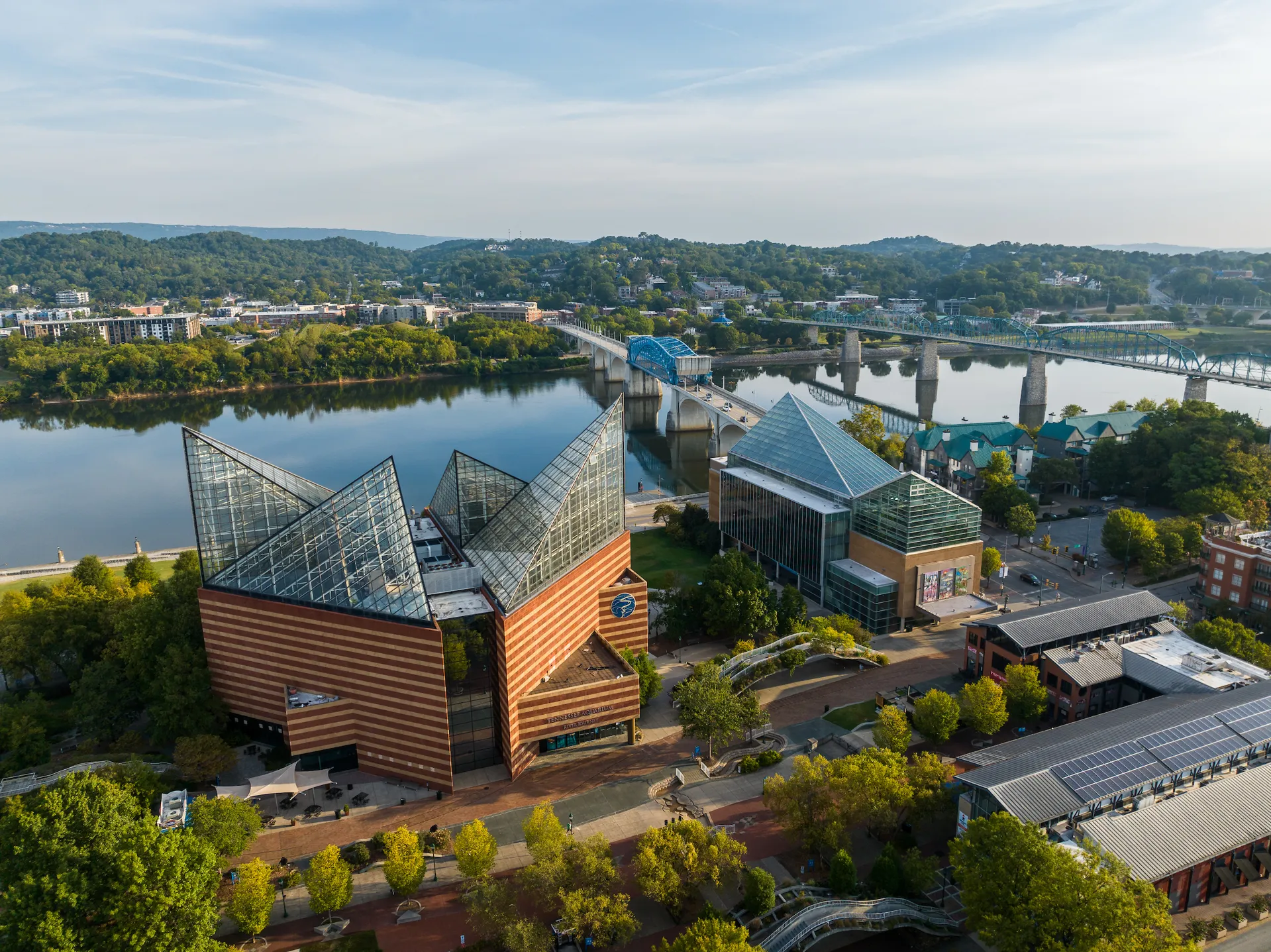National Hispanic Heritage Month takes place from Sept. 15 to Oct. 15 annually and celebrates the contributions and influence of Hispanic and Latino Americans and their heritage and culture to the history and achievements of the United States.
While American citizens whose ancestors came from Spain, Mexico, the Caribbean and Central and South America have helped strengthen communities across the country, individuals from these backgrounds have been historically underrepresented in the zoo and aquarium industry. For Hispanic Heritage Month, two Aquarium employees of Hispanic descent explore how their work at the Tennessee Aquarium can help pave the way for future generations of aquarists, conservation scientists and zoologists.
Brenda Salgado, Aquarist I
My family is my backbone. Like many parents, mine spent their entire lives providing for their children, doing everything they could to help us achieve our goals.
I was the first in my family to earn a college degree, and for this reason, I was determined to make them proud.
When I was in school, I knew I wanted to work with animals, but I was never sure what career I wanted to pursue for myself. I could not picture what path to take.
There was not a single Hispanic role model to guide me.
My parents tried their best, but having only a middle school education, it was hard for them to know how to help. Despite going to a Hispanic-serving institution, there were only a handful of Hispanic students in my biology classes, and none were taught by Hispanic professors.
You hear so many stories similar to mine because our parents and grandparents — even great grandparents — fought for us to have the luxuries we have today. They weren’t able to graduate high school or get their dream job because they sacrificed their lives to make sure their children had those opportunities.
It’s a silent struggle not being able to connect with the people you look up to due to differences in the way you were raised. Nobody truly understands the challenges a person is facing unless they have experienced them for themselves.
Being in a field where my heritage is underrepresented has shown me how important it is to change this.
I want to show younger generations that it is possible to achieve your dreams despite having so many invisible obstacles in the way. I feel like I blindly found my way to my dream job, but my path to working here might have been clearer if I had a role model who looked like me to show me the way.
As an aquarist, I work mostly with fish, but interactions with the guests who visit the aquarium are a common occurrence. One of my favorite parts of my job is being able to connect with our Hispanic guests. It brings me joy seeing their faces light up when I speak in our native language. These interactions feel good, whether it be something simple, like helping them find their way, or answering a more elaborate question about a species of fish in our exhibits.
Growing up with parents who only spoke Spanish made me realize the importance of having people understand you. I see my parents in the people I interact with, and I will always do my best to help them because I know how much it means for them to feel heard.
I am grateful that my work here at the Tennessee Aquarium lets me show mi gente we can do anything with hard work and dedication! It is important to me to be the role model I never had.
Helaina Gomez, Watershed Coordinator
My Abuelita and Abuelito were barely 18 when they left Mexico for Southern California in the 1970s. They were expecting their first son, my dad, and dreamed of the opportunities being an American would provide for him.
My dad went on to start a family of his own and moved us across the country to Atlanta, Georgia, where he began a 30-year career as a firefighter and established himself as a member of his community. However, moving to the South changed a lot for the Gomez family, and the pressure to blend in — or rather, to assimilate — distanced us from our Mexican heritage.
My Abuelita worked hard to keep traditions alive within our household. Part of that included reminding me of the important role nature has in our existence. Her connection to plants and animals spurred my fascination with the ecosystem surrounding me and led me to the career path in conservation science I’m following now.
For as long as I can remember, I’ve always responded to the question “What do you want to be when you grow up?” by pointing to roles involving working with animals. I dreamed of being a veterinarian or a wildlife photographer, anything I could think of that meant I could be in nature.
As I got older, I discovered other ways to make that happen, and I began pursuing a career in conservation ecology.
As I’ve become more involved in this line of work, I’ve noticed that, sometimes, I’m the only person of color in the room. I am very aware of the historic issues that have led to this, but I am also reminded of how my presence indicates things are changing.
When other people of color see me in the conservation community, I want them to feel empowered to protect their environment, too. As I grow older and progress in my career, I hope I will be able to look around the room and see many different groups of people working together.
The importance of representation is better understood today than it has ever been, and I am proud to represent the Latino community in a space where our voice and perspectives have been historically underrepresented.
